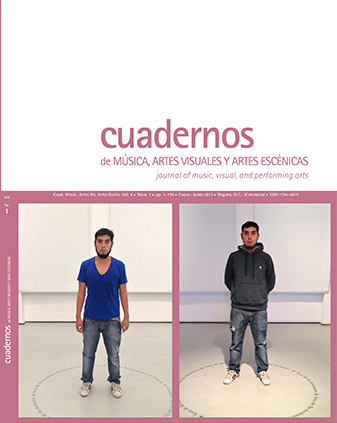Abstract
Este artículo reflexiona sobre un proceso de investigación artística de carácter teórico y práctico en el contexto del GPEC, por sus siglas en portugués (Grupo de Investigación en Puesta en Escena Contemporánea). A partir de la experimentación de montaje del texto Esta propiedad está condenada, del autor norteamericano Tennesse Williams, se discuten cuestiones fundamentales en el universo del teatro contemporáneo en Brasil, específicamente en Salvador de Bahía. Autores que evidencian las tendencias de la escena contemporánea fueron reunidos para dar soporte a las discusiones, como Lehman, Picon-Vallin, Pareyson y Ryngaert, entre otros. El recorte para este contenido utiliza nociones como teatralidades híbridas y elementos inmateriales, las cuales nortearon el proceso de investigación escénica para la obra Propiedad condenada, de la Compañía de Teatro de la Universidad Federal de Bahía.
This journal is registered under a Creative Commons Attribution 4.0 International Public License. Thus, this work may be reproduced, distributed, and publicly shared in digital format, as long as the names of the authors and Pontificia Universidad Javeriana are acknowledged. Others are allowed to quote, adapt, transform, auto-archive, republish, and create based on this material, for any purpose, provided the authorship is duly acknowledged, a link to the original work is provided, and it is specified if changes have been made. Pontificia Universidad Javeriana does not hold the rights of published works and the authors are solely responsible for the contents of their works; they keep the moral, intellectual, privacy, and publicity rights.
Approving the intervention of the work (review, copy-editing, translation, layout) and the following outreach, are granted through an use license and not through an assignment of rights. This means the journal and Pontificia Universidad Javeriana cannot be held responsible for any ethical malpractice by the authors. As a consequence of the protection granted by the use license, the journal is able to publish retractions or to correct information already published. Publishing contents in this journal does not generate royalties for contributors.


